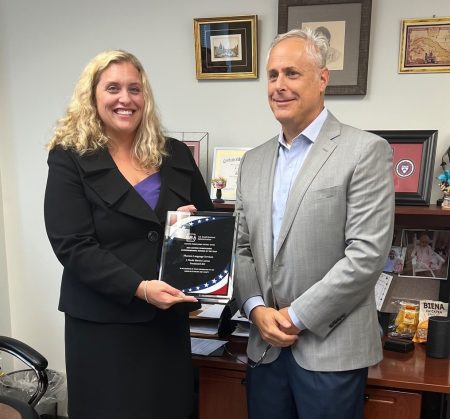An unorganized wallet makes it difficult to find necessary items, so it's a good idea to regularly remove crumpled business cards and faded receipts. Once those items are removed, you can then carefully assess the remaining contents of your wallet.
This spring, as you tidy up high shelves and ceiling fans, take a moment to freshen up the contents of your wallet. It's a quick task that can result in saving money. Those old, unused credit cards may still have associated charges annual fees. Additionally, you might still be paying for a wholesale club membership even if you haven't shopped there in a while. Also, if you have unused gift cards from the holidays, they have value.
Don't feel overwhelmed by an overly full wallet. Here's how to reduce its contents.
Organize your credit cards
Credit cards can actually be pretty dirty, so it's a good idea to physically clean them. After doing so, consider whether each card is still essential for you to carry in your wallet. Determine if a card is still suitable for your needsYour needs change over time, and your credit cards should adapt. There are various reasons why you might consider making a change:
You're prepared to upgrade from a secured credit card to an unsecured one.
Your travel behavior has changed, affecting the ideal rewards card for you.
- You opened a credit card with a 0% interest offer for a significant purchase or debt repayment, but the promotional period has ended and the balance is settled. Another credit card is offering an attractive sign-up bonus. Your spending habits have shifted.
- You no longer wish to pay an annual fee for a card.
- If you're considering changing your card, there are options available, but think carefully before canceling or cutting it. Keeping an older credit card active and using it sparingly can impact the average age of your accounts, which influences your credit scores. “In my opinion, if there's no annual fee, just keep it open,” suggests Nick Marino, a certified financial planner in Columbus, Ohio. If you're paying an annual fee for an unused old card, contact the credit card company to inquire about transferring your account to a no-fee card.
- This allows you to maintain your account without incurring costs. If this option is unavailable, canceling the card to avoid the annual fee could be a money-saving decision, despite the temporary impact on your credit scores.
- Explore reducing interest rates
- The average APR for credit card accounts that charge interest is 22.75%, according to the Federal Reserve. At this rate, your existing credit card debt could be costing you a significant amount each year. Applying for a balance transfer credit card and moving your debt to it can provide a promotional 0% interest rate for an extended period, often a year or more. This can save you money on interest payments while you work on paying off the debt.
Assess credit reports
This is also a good time to review the overall condition of your credit history. Obtain your free credit reports from annualcreditreport.com and ensure that the information listed is accurate.
Sara Young, a certified financial planner in Cincinnati, said in an email to make sure you can get into each account listed. If you can't, stop the spring cleaning and fix this — this is very serious cleaning! If you find mistakes,you can question them
with the credit bureaus.
Think about those memberships While reviewing credit cards, closely examine the membership cards you carry. Gyms and wholesale clubs can be costly, so if you haven't used them in a while, it's time to cancel. Marino says it's all about being organized. Keep an eye on your cash flow and eliminate things you no longer find valuable.
More From NerdWallet
How the Visa-Mastercard Swipe Fee Settlement Affects Cardholders
How a Travel Credit Card Can Be Your Ticket to Big Savings
CFPB Slashes Credit Card Late Fees to $8 Sara Rathner writes for NerdWallet. Email: [email protected]. Twitter: @sarakrathner. The article Why Spring Cleaning Your Wallet Can Save Money originally appeared on NerdWallet.
This spring, while you’re dusting off high shelves and ceiling fans, take a moment to freshen up the items in your wallet, too.
While you’re reviewing credit cards, take a hard look at the membership cards you carry around. Gyms and wholesale clubs can be expensive, so if you haven’t used them in a while, it’s time to cancel.
“It all goes back to being organized,” Marino says. “Just continuing to monitor what your cash flow looks like and cutting things you no longer find value in.”
More From NerdWallet
Sara Rathner writes for NerdWallet. Email: [email protected]. Twitter: @sarakrathner.
The article Why Spring Cleaning Your Wallet Can Save Money originally appeared on NerdWallet.









